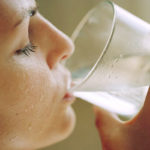Based on the guidelines from the Institute of Nutrition, breastfeeding mothers should follow the recommended dietary pattern as follows:
Divide meals or increase the number of meals
Due to increased energy needs and the necessity to ensure an adequate supply of nutrients, including micronutrients, the daily menu for breastfeeding mothers should be divided into several small meals (about 3 to 6 meals per day).

Diversify the diet
The diet of breastfeeding mothers should include a variety of foods, at least 10 to 15 different types, while ensuring a balanced intake of the 4 main groups of nutrients: carbohydrates, proteins, fats, as well as vitamins and minerals. In addition, the diet should provide the necessary amount of calcium, which is 1300mg per day, not only to supply calcium to the baby through breast milk but also to prevent bone loss in the mother.
In addition to consuming other calcium-rich foods such as meat, fish, eggs, and seafood, breastfeeding mothers should also ensure the intake of about 100mg of calcium per day. This can be achieved by drinking 100ml of warm milk, consuming 15g of cheese, or having 100g of yogurt daily. When necessary, postpartum mothers should seek advice from a doctor on the supplementation of vitamins and minerals, especially iron, zinc, vitamin D, and calcium. It is important to drink enough water, about 2.5 to 3 liters per day, equivalent to 12-15 cups, and prioritize warm water consumption.
Supplement essential micronutrients
Postpartum mothers are recommended to take a high dose of vitamin A, with 200,000 International Units (IU) in the first month. Additionally, postpartum mothers should continue to supplement iron through iron or multivitamin tablets, at least in the first month after giving birth.

Have proper working and resting time, stay happy and optimistic
To ensure good health, postpartum mothers need not only a balanced diet but also a positive and comfortable mindset, staying away from stress and fatigue. Striking a balance between work and rest time is important. Adequate and deep sleep is essential, with a minimum of 8 hours of sleep per day for recovery and energy restoration.
Avoid excessive dietary restrictions
In many areas, due to local customs and beliefs, postpartum mothers are often advised to avoid many types of foods while breastfeeding, with the belief that they could have negative effects on infants. However, there is no scientific evidence supporting these beliefs. The important thing is for mothers to pay attention to food safety and avoid consuming stimulating drinks or foods such as alcohol, beer, coffee, as well as reducing the consumption of spicy foods like onions, garlic, and chili. It is necessary to avoid eating stale or potentially spoiled food to prevent the risk of food poisoning.
Women during the breastfeeding period tend to lose weight more effectively than non-breastfeeding mothers, as the stored fat during pregnancy is used for milk production. Therefore, it is not necessary to intentionally go on a diet during this period, as mothers need a complete and energy-rich diet to meet their own needs and maintain milk production. To lose weight, simply follow a balanced diet combined with regular exercise and reduce daily sugar intake.

Use medication with caution
During breastfeeding, the choice of food should be made carefully, especially when there is a need to use drugs such as antibiotics, hormones, or medications affecting the nervous system. Before using any medication during this period, it is mandatory to seek advice and prescription from a doctor, and the dosage and usage instructions should be strictly followed.





































